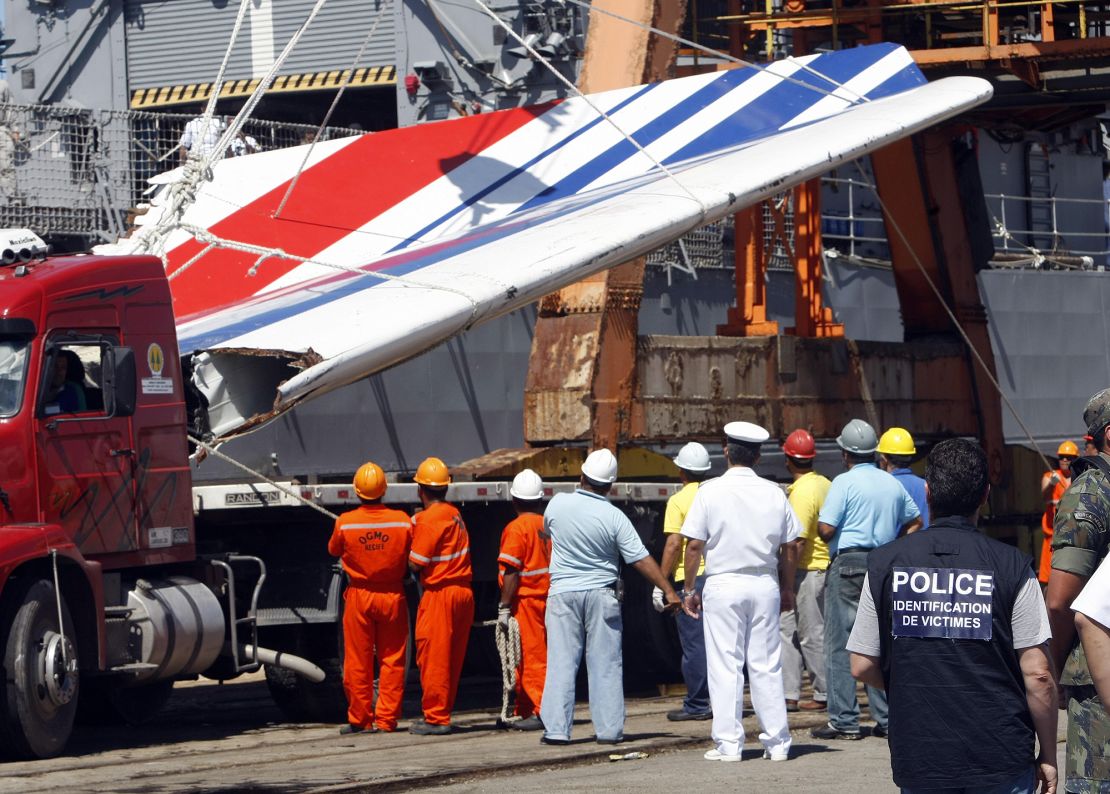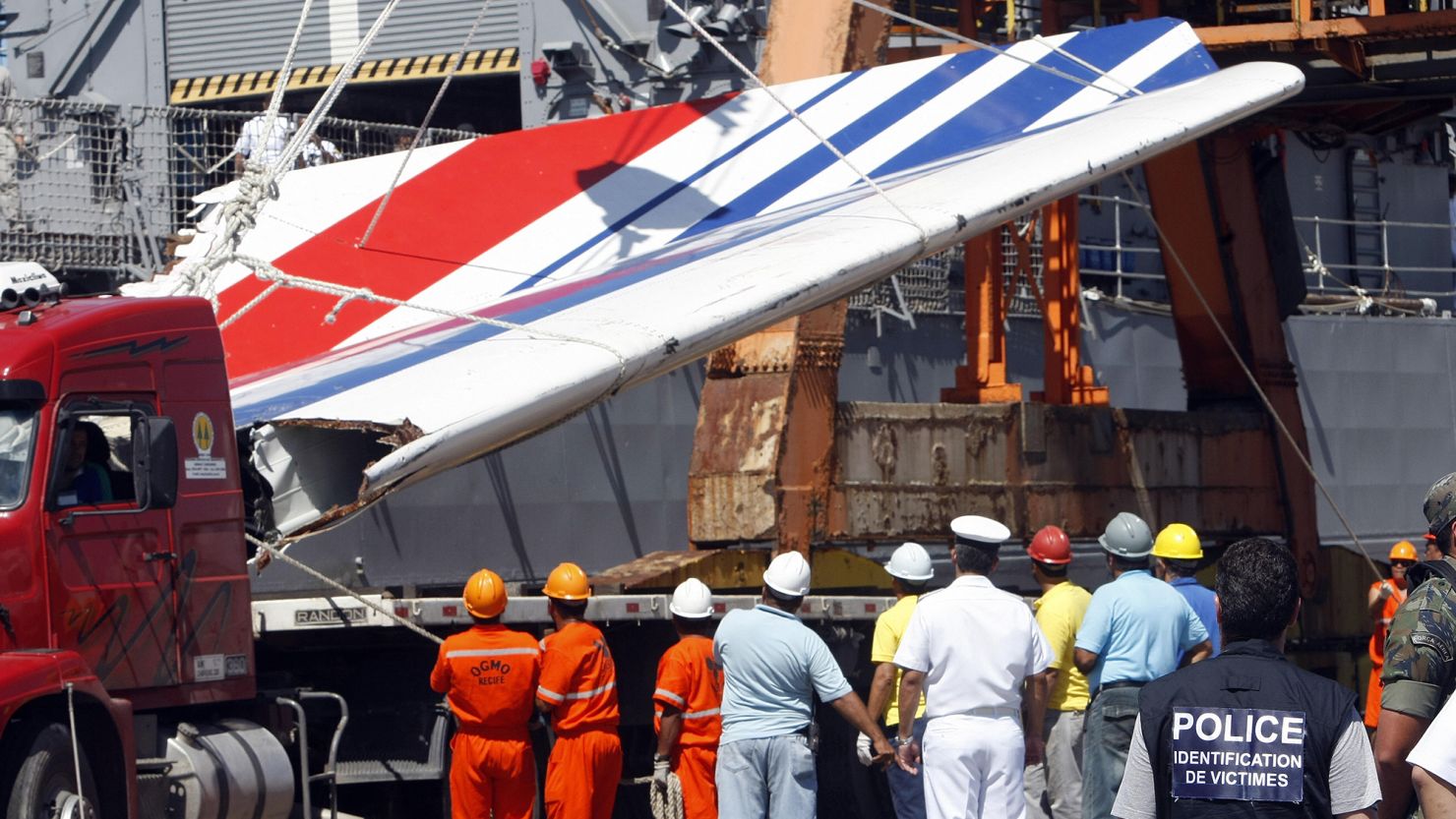The trial of two of France’s biggest companies began Monday over the crash of Air France flight 447 in 2009 that killed 228 passengers and crew.
The national flag carrier and Toulouse-based Airbus (EADSF) have been charged with involuntary homicide for their part in the disaster over the Atlantic.
Both companies were placed under official examination in 2011 for similar charges by prosecutors trying to determine responsibility for the crash. But those charges were dropped in 2019 after eight years of judicial scrutiny. Now, owing in large part to pressure from families and friends of the victims, they are back in court.
Air France denied the company was responsible for the crash and said the charges should again be dismissed.
“Air France will continue to maintain, as it has always done, that it did not commit any criminal fault at the origin of this accident and will therefore plead for acquittal,” Claudia Chemarin, a lawyer for the airline, said in a statement to CNN.
Airbus gave a similar statement to French newspaper La Tribune.
If convicted, the companies each face a fine of 225,000 euros ($219,000).
There was mystery surrounding the crash of the flight from Rio de Janeiro to Paris from the outset. For one thing, most fatal aircraft accidents happen on take-off or landing: this disaster occurred mid-flight.
Then there was the debris. When searchers first found parts of the plane floating in the South Atlantic 400 miles northeast of the Brazilian coast they were in a relatively confined area. A catastrophic loss of cabin pressure, or a bomb, would have scattered debris over miles of the ocean.

The first recovered parts of the plane added to the mystery. Many, like the shelves from the galley, showed evidence of damage from what experts called “downward compression.” That is, the plane hit the water seemingly flat with extreme downward force, as if it had pancaked onto the water with little forward motion.
That is what accident investigators eventually concluded had happened. France’s Bureau d’Enquêtes et d’Analyses (BEA), which investigates aircraft accidents, found in 2012 that the plane was falling more than 10,000 feet per minute when it hit the ocean but had a forward ground speed of just 107 knots, about 123 miles an hour, well below the stall speed of the Airbus A330.
BAE’s accident investigators concluded that the initial cause of the crash was icing on devices called pitot tubes, sensors that are crucial to determining an aircraft’s speed and attitude. It was a problem that had affected a few Airbus aircraft in the past, but one which the company had not corrected.
The investigators found that once the sensors failed, the autopilot disengaged and the cockpit crew lost reliable readouts of flight data. Because the senior pilot on board was on a rest break, the two, more junior co-pilots took over, flying the plane manually. Within seconds, one of the two at the controls pitched the nose upward, apparently to gain altitude, but inadvertently put the A330 into a high-altitude stall.
Without sufficient forward speed, the Airbus began dropping like a stone. The two co-pilots signaled the senior pilot to come assist. But from the cockpit voice recordings, it is evident that without visual references in the pitch-black night, with unreliable instruments, none of the three understood exactly why the plane was falling.
For four minutes, as the plane plummeted downward from nearly 40,000 feet to the sea, the three tried desperately to figure out what was going wrong and what to do about it.
The charges against Airbus center on its failure to correct the known problem with the pitot tubes. Air France stands accused of failing to train pilots on how to respond to the kind of situation the crew faced.
“To say today that only the pilots are at fault is too easy, it is very exaggerated and therefore it is not the truth,” Philippe Linguet, who lost his brother in the crash, told CNN on Friday.
“We want to confront the accused with their faults and if the court recognizes these faults, the accused Airbus and Air France should be condemned,” he added.
The trial is expected last until early December.
— Pierre Bairin contributed to this article.








